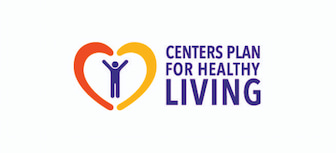Who Needs Treatment from a Downtown Brooklyn Physical Therapist?
Your Brooklyn primary care doctor may recommend that you book an appointment with a physical therapist if you have certain medical conditions or after you’ve suffered an injury from a vehicle accident, fall or work-related injury.
Physical problems that usually improve with physical therapy (PT) include:
- Sprains and strains
- Fractures
- Carpal tunnel syndrome
- Post-surgical recovery
- Chronic back pain or neck pain
- Amputations
An experienced physical therapist in Downtown Brooklyn sees patients of all ages.
Some therapists choose to specialize in a particular aspect of physical therapy, such as:
- Neurological conditions like cerebral palsy or multiple sclerosis
- Orthopedics
- Pediatrics
- Geriatrics
- Sports medicine
- Women’s health
Does Insurance Cover Physical Therapy in Downtown Brooklyn?
When it’s considered necessary medical treatment for certain conditions or for rehabilitation, PT is usually covered by your insurance plan, at least for a limited period of time. Check with your insurance carrier to learn the details about your coverage, including whether a referral is needed from your primary care doctor. Some PT requires insurance pre-approval.
Physical therapy in Downtown Brooklyn is covered by most medical insurance plans, including:
- Medicaid
- Medicare
- BlueCross HMO
- Fidelis
- MetroPlus
Some Brooklynites, like athletes, work with physical therapists to prevent injuries or increase flexibility. A professional sports team may cover this expense, or you may be required to pay out-of-pocket for these sessions. The role of a physical therapist includes providing education, such as instructions on what activities or exercises to do at home to add benefits or how to use equipment like walkers, canes, crutches or wheelchairs as you recover.
What Types of Treatment Do Downtown Brooklyn Physical Therapists Provide?
Physical therapy in Downtown Brooklyn benefits you no matter what physical challenges you’re dealing with. Because of the different issues that physical therapists address, the approach to treatment has to be individualized, so it’s keyed to your specific needs.
The categories of treatments offered by your Downtown Brooklyn physical therapy practice include:
- Therapeutic exercises. These exercises restore your physical functionality, improve your strength and decrease your pain. Exercises may involve using your body weight or equipment such as hand weights or resistance bands.
- Range of motion exercises. These exercises restore functioning to a particular part of your body. Passive range-of-motion is when the physical therapist moves or stretches a body part without any effort from you. Active range-of-motion exercises are performed by you without help from the physical therapist.
- Balance exercises. Your physical therapist guides you through these exercises to improve your balance and prevent falls.
- Aquatic therapy. Aquatic therapy involves exercises that you do in water or by soaking sore or swollen areas of your body, as part of your recovery from injury.
- Electrical stimulation. Safe levels of electricity stimulate targeted areas to reduce pain or muscle tension.
- Laser therapy. Injuries to connective tissue or muscles are treated with specific wavelengths of light, reducing pain and inflammation.
- Dry needling. To perform dry needling, your therapist inserts tiny needles into trigger points, which are areas that may be causing your pain. This technique increases blood flow, releases muscle tension and reduces pain.
Physical therapists undergo extensive training to determine the best form of treatment for your needs after examining and evaluating your musculoskeletal problems. If you have minor injuries, you only need to book an appointment to see a physical therapist for a couple of weeks, but if you have suffered more serious injuries or have a chronic condition, you may have to work with a Downtown Brooklyn physical therapist for a month or longer.
Do Brooklyn Physical Therapists See Patients Virtually?
If you have difficulty traveling to medical offices, you may be interested in virtual visits. Also known as telehealth visits, these appointments make it possible to book an appointment with a physical therapist from your office or home through a mobile device or computer. Many Brooklyn physical therapists offer virtual visits as an option when hands-on treatment isn’t required.
Telehealth physical therapy benefits include:
- You don’t need to spend the time on transportation to the office.
- You can fit your appointment into your busy lifestyle.
- You don’t have to worry about being exposed to contagious illnesses in public.
- You don’t spend valuable time waiting in a waiting room.
Virtual visits aren’t the best choice for everyone, since you need treatments, such as massage or passive range-of-motion techniques. Virtual visits may be a good option for those who can benefit from appointments focused more on education than on hands-on treatment or as a supplement to in-person visits.
If you need an in-person visit, many Downtown Brooklyn physical therapy practices offer appointments in the evenings or early mornings to accommodate you if you’d have difficulty attending appointments during the day. To get the best results from physical therapy, keep all your appointments and follow the instructions your Downtown Brooklyn physical therapist provides you.
What Is a Physical Therapist?
A physical therapist is a medical professional with extensive training in treating illnesses and injuries that affect your body’s ability to move. The best physical therapists in Downtown Brooklyn provide a wide variety of treatment options to improve functioning, decrease pain and prevent disability. Therapists customize treatment plans for each individual patient.
Brooklyn is the most populous of New York City’s five boroughs. It has a vibrant culture and diverse communities. Downtown Brooklyn physical therapy is available in hospitals, clinics, private practices, schools and rehabilitation facilities. You have many options for getting around using public transportation, which makes it convenient to book an appointment with a physical therapist near you.


 My BestDoc
My BestDoc
 Future Appointments
Future Appointments
 Settings
Settings
 Sign out
Sign out










